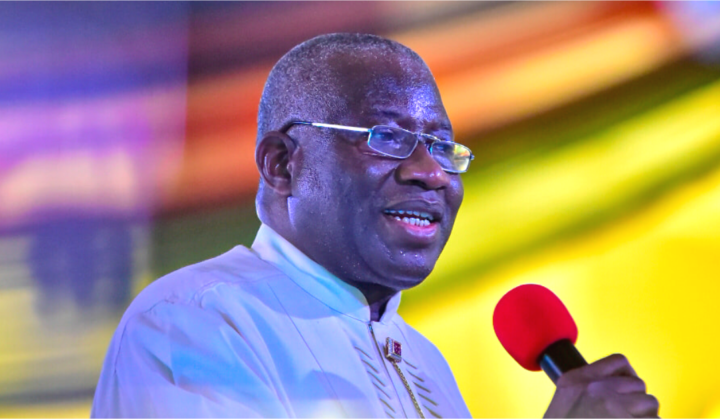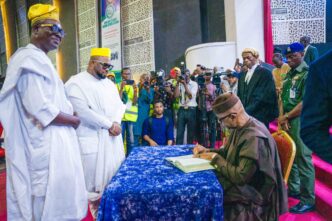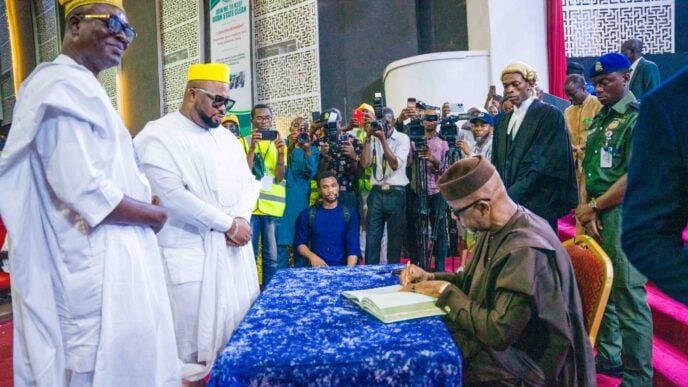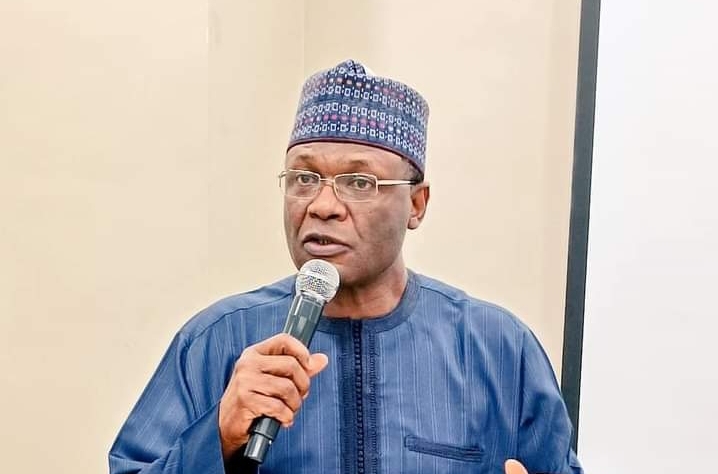Goodluck Jonathan
BY WEALTH DICKSON OMINABO
As Goodluck Ebele Jonathan celebrates his 67th birthday on November 20, it’s another opportunity to honour a remarkable leader whose way of life continues to inspire many in Nigeria and beyond. This occasion allows us to highlight some of the motivating lessons from his stewardship and his contributions to society. It is fitting to emphasise the teachings that his commitment to public service offers and how his legacy of democratic humanism has consistently influenced, shaped and characterised the political landscape and democratic culture across Africa.
As an African statesman, his life is like a book of interesting chapters, with footnotes of hope and moral lessons, especially for political leaders in Africa. His leadership style is defined by a commitment to peace and inclusive governance. Since concluding his term on May 29, 2015, as President of Nigeria, Jonathan has emerged as one of Africa’s most distinguished statesmen and a global symbol of democracy. Regarded as a proponent of peace and an emblem of hope. He is frequently lauded for his motivating and significant leadership, alongside his mature approach to politics.
His brand of politics is deeply philosophical and has continued to attract attention and public commendations from Africa and beyond. This is more so, given the global realities and the challenges associated with democracy and the threat to globalisation and liberal normative values of peace, justice and political freedoms.
Advertisement
His political life is guided by morality, justice and empathy rather than the usual tradition of who gets what, how and where. For Jonathan, politics should be a means and not an end; a means to solve human problems, an avenue to foster peace and progress in society. The goal of politics, Jonathan believes, should be the upliftment of human agency and help strike a balance between citizens’ expectations and their lived realities.
As a politician, he advocates that political aspirations should be pursued in a manner that uplifts humanity and that society should not be a victim in the quest for political aspirations. This is the underlying philosophy why he subscribes to peaceful elections and peaceful transfer of power. This posture is what attracts stakeholders around the world to seek his service to help mediate political settlement in areas of political tension during and after office.
Jonathan’s political philosophy of democratic humanism was woven as a thread in his policies and programmes, during the five years that he governed Nigeria as president. He prioritised social justice, inclusion, peace and unity in a complex multi-ethnic nation, with diversity in language, culture and religion.
Advertisement
During his administration, Nigeria witnessed significant strides in electoral reforms, with the introduction of biometric voter registration and electronic voter authentication, enhancing the credibility of elections. His administration adhered to the principle of one man, one vote, overseeing the organisation of the most credible and transparent elections in the Fourth Republic in 2011 and 2015.
His administration instituted policies and reforms towards the diversification of the nation’s economy, which helped address some systemic challenges such as food insecurity, poverty, illiteracy and social exclusion.
In an era of polarisation and growing authoritarianism and daily threats to the values of peace, freedom and unity, Jonathan serves as a cynosure of reason for leaders. His stewardship reminds us that democracy is more than elections and functional political institutions, it is a daily act of nation-building, one that requires citizens, especially leaders, to be of high moral character and be active builders in their communities.
Jonathan believes that a life well-lived is anchored on service. For him, politics is not about the fulfilment of personal aspirations but about service to society and solving human problems. He says patriotism should be the guiding philosophy of politics and leadership and until we prioritise these virtues as standard practice there cannot be any meaningful impact in our society.
Advertisement
He believes that in the conduct of statecraft, human liberty should take precedence over other concerns. His administration emphasised the primacy of human dignity, equality, and the right of every citizen to participate in the political process.
Jonathan posits that: “Politics and patriotism are better understood from the prism of the ancient Greeks who, in a bid to rally the people to purposeful nationalism, roused our collective conscience by profiling the populace along three broad categories, to wit: the idiots, the tribesmen and the citizens.
“In their categorisation, the idiots are neither people of low intelligence nor those that suffer mental atrophy, but individuals who only focus on self and self-gain because of their narrow-mindedness. As for tribesmen, the Greeks saw them as those who were so trapped in their tribalistic sentiments that they became a threat to others and a menace to society.
“Different from the situational locale of citizenship, the Greeks believed the citizen is that person who toils for the common good, lives within his legal rights and delivers on his responsibility to society; always minding the effects of his actions on the rest of society.”
Advertisement
Jonathan believes that democracy is a communal asset, and it behoves political leaders and citizens to make it work and ensure that democracy yields peace, justice and prosperity to the people and that democracy should be able to defeat the miseries of poverty and despair.
Jonathan’s philosophy of democratic humanism is at the heart of his global recognition earning him the stature of an African statesman and an icon of peace and a global envoy engaged by global institutions to help advance democratic tenets and promote peace and democratic standards within Africa and beyond. Since leaving office, Jonathan has been involved in election observations in West Africa, East Africa, South Africa and even in Asia.
Advertisement
His leadership style has an impact that extends beyond Nigeria. His example has encouraged leaders in other African countries to give peaceful handovers of power top priority. Recent African political transitions in Senegal, Botswana, and Liberia, when incumbent presidents have peaceful transitions to opposition parties attest to the appeal of Jonathan’s political philosophy.
At 67, Jonathan represents more than just a name, he is a voice, an idea, a moment, and a legacy. To some, the name Goodluck Jonathan is the fulfilment of a dream and pathway towards the realisation of purpose and an encounter with destiny. His birthday therefore is not just another day, or personal milestone but a day of inspiration to take stock, and reflect on what patriotism and nation-building really entail.
Advertisement
In an era defined by politics of attrition, political violence and power competition, and state capture, Jonathan’s adherence to the rule of law serves as a significant lesson on what patriotism and accountable stewardship mean.
As he continues with his service to Africa through different nation-building initiatives, his legacy serves as a great inspiration to all citizens on the true meaning and worth of leadership, democracy and power.
Advertisement
Happy birthday, Your Excellency.
Ominabo is a media aide to Dr Goodluck Ebele Jonathan (President of Nigeria from 2010-2015).
Views expressed by contributors are strictly personal and not of TheCable.
Add a comment









